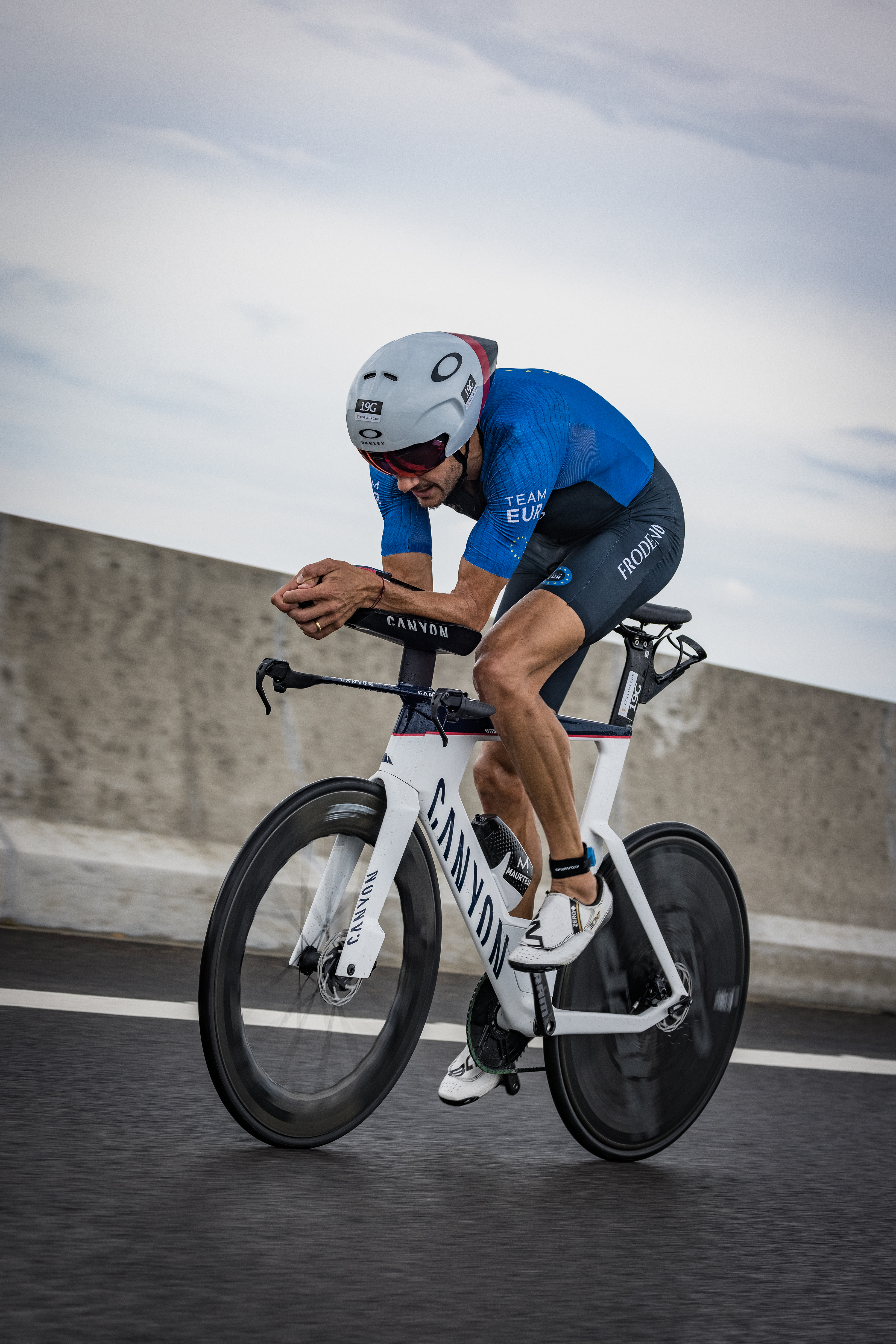Jan Frodeno on staying fast after 40
The three-time Ironman World Champion hit the big 4-0 in August, but shows no signs of slowing down. Here he shares his thoughts on getting better with age

Jan Frodeno has been mastering triathlon for more than two decades, and to many observers he is the best of all time.
The only athlete to have won the Olympic Games and the Ironman World Championship, he can add two Ironman 70.3 world crowns to that resume – and an iron distance world record, whether you choose to count his 7:35 in Roth, Germany in 2016 or his 7:27 in a specially arranged head-to-head showdown with Lionel Sanders 130 miles further south in Bavaria this summer.
Having turned 40 just 10 days before, he can also now add winner of the inaugural Collins Cup to his palmares after leading Team Europe to success in Slovakia, where for good measure he also set the day’s fastest time over the 100km course.
While Frodeno has always been an exceptional athlete, what has stood out since turning to non-drafting racing in 2014 is how much he has carried on improving – and become increasingly difficult to beat.
Genetically blessed no doubt, he also makes smart choices as to when and where he races, typically no more than three full distance races spread through the season, with middle-distance events raced sparingly.

Frodeno also leaves little to chance in making sure he’s in peak condition on the start-line, whether that’s to beat Alistair Brownlee and Javier Gomez in an epic Ironman 70.3 contest in South Africa in 2018, or regaining his Ironman title for a third success in Hawaii in 2019.
“The key to being there in your forties is motivation – knowing why you do it,” Frodeno explains. “The most important thing for me is keeping my mind fresh. The last couple of years have also really taught me to focus on the process rather than the results or the goal. I think generally that’s a healthy approach, but it [lockdown] has forced me even more in that direction.”
The Collins Cup, with its novel head-to-head-to head format that pitted him against USA up ‘n comer Sam Long, and 15-time Ironman 70.3 winner Sam Appleton of Australia, helped keep the fire burning. With the captains being bona fide legends of the sport, the event in Samorin gave further incentive for the German to keep striving.
“The fascinating thing about the Collins Cup is the meeting of generations,” he says. “Look at Simon Whitfield, who was looking up to Mark Allen, and I was looking up to Simon. These kids are coming in and they’re looking up to my generation – and I’m still around. It’s an awesome feeling to come out and have a crack with these guys in a relaxed atmosphere.”

A secondary element to keep firing after 40 is consistency. Training hasn’t changed greatly over the years, and Frodeno is still reaching many of the same lofty standards away from the racecourse.
“I’m running the same key sessions as I was three years ago,” he adds. “Two weeks ago, I ran the same set and times I ran before South Africa 2018 [where he posted a 66min half-marathon] – although admittedly I have carbon shoes now.”
Where he does issue a watchout is in the changing demands outside of the day job. When Frodeno was winning Olympic gold in a sprint finish from Whitfield in 2008, he had little more than himself and his goals to focus on.
Now, having married fellow Olympic gold medallist from Beijing, Emma Snowsill, in 2013, he has two children, Sienna and Lucca, to care for as well as opening a café-restaurant, La Comuna, near home in Girona, and a non-profit foundation, the Frodeno Fund.
“Life in general has become busier, which is where I need to become careful,” he says. “Having a hotel and restaurant, a foundation and other stuff, keeps you busy.”
The genuine idea was to create something that in 20 years when we’re sitting at the beach having some patatas bravas and a cold beer, we want to think: ‘f***, that was stupid, but man that was good fun
It means rest and recovery play a pivotal part and must be prioritised, but there also needs to be room for some fun – and that was where the Tri Battle Royale came in. Conceived and financed by Frodeno and his long-time manager Felix Rüdiger, it was set up on a purpose-designed course with elements such as a banked U-turn to try to keep the speed up on the bike.
“Everything from the outside seems so professional, but we were living out our inner kids – doing something for the sake of it,” he says. “The genuine idea was to create something that in 20 years when we’re sitting at the beach having some patatas bravas and a cold beer, we want to think: ‘f***, that was stupid, but man that was good fun!’
“Let’s be honest, the most invigorating, the most fun times in life are not when you’re sitting balanced, comfortable… you want to be that cat chasing a mouse every now and then – and get a few grey hairs in the process.”
Where Frodeno heads next should be revealed shortly. Robbed of a return to Kona until next October, one thing is for sure – wherever he goes, it’s sure to be fast. Titles, victories and speed still drive the 6ft 4in German: “I want to get something dialled in and see where I am in my 40s!” he says.
220 named Jan Frodeno one of the best male triathletes and one of the best Kona triathletes of all time. Do you agree?




